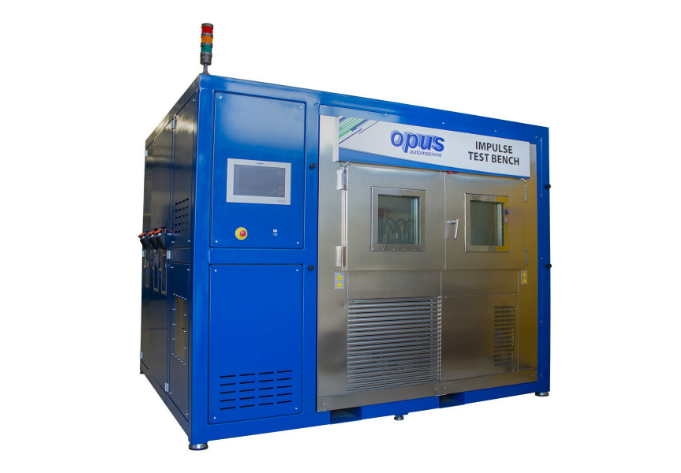
The customer, a large multinational company in the OEM Automotive sector, needed a test bench for flexible pipes of various shapes and sizes, using fatigue stress. The bench had to be able to perform tests at certain temperatures (-40 ° + 180 °) and to handle 3 test circuits with 3 different types of oil.
The bench was created as and when needed, to respond to the client’s requirements.
The need to manage 3 test circuits, with 3 different types of oil, with the same test bench has generated two fundamental characteristics for the test bench implemented by Opus, to guarantee safety:
The system has been equipped with all the necessary safety measures to protect the operators and the plant. The front doors are automatically locked and unlocked only if the system detects that there are no dangers in the chamber (low / high temperature or high pressure in the pipes).
The impulse test bench is equipped with an industrial PC and a real-time data acquisition system. The software, designed and built by opus automazione, allows one to set up the test and obtain the complete test report. The software is designed for different levels of access to the functions of the test bench. It is possible to create test plans directly from the PC and transfer them to the database of the test bench. As a result of this, the operator cannot modify the test plans, but can only choose the type of tests to be performed. The software processes the report of each test including all the necessary information (serial numbers, number of tubes and results). The system stores a report and the various overruns / failures for each test.